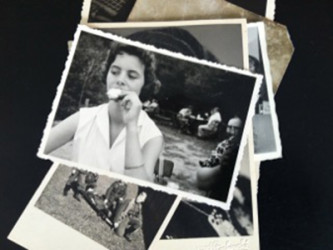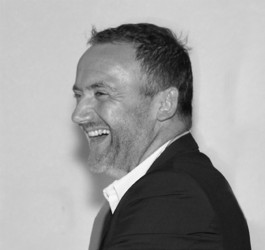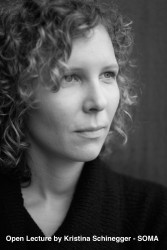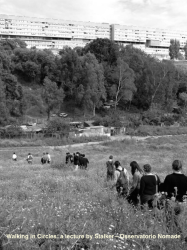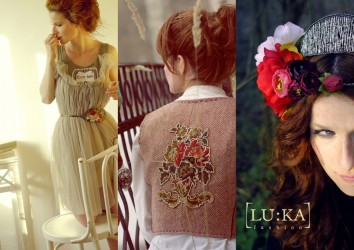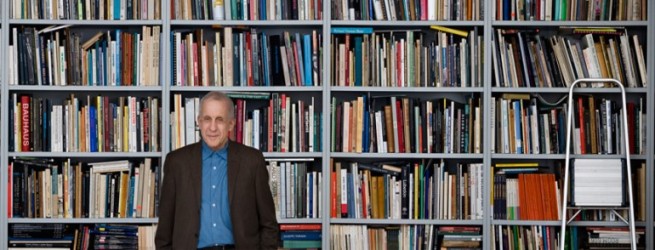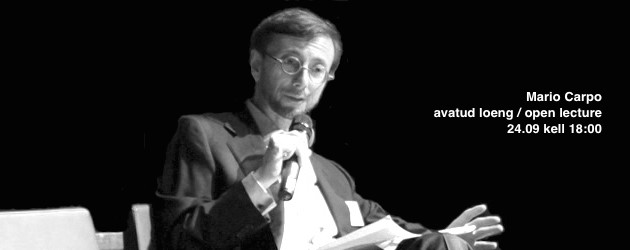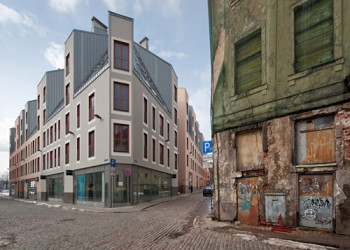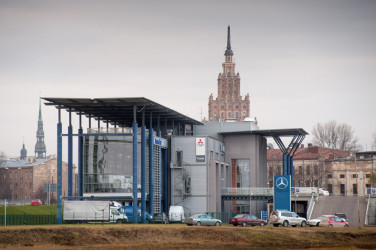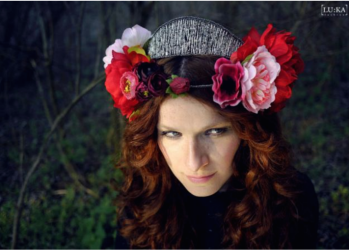Open Lectures
12.11.2015
Jan Verwoert public lecture on November 12th
On Thursday, November 12th at 6PM, internationally renowned art theorist and professor of Oslo Art Academy Jan Verwoert will hold a public lecture Whipped Cream for the Walking Dead at the hall of the Estonian Academy of Sciences, 6 Kohtu St.
The material world each day gives us more stuff to buy and fear, while at night our faces at night are bathed in the glow of LED-screens as we look for true life on the net. Did the war stop in the ’50s? Or did the pills just get better in taking the edge off? What to do when everywhere we go, online or IRL, we still can’t help but bring our body?
One way to deal with the situation, it would seem, is to turn life into a shimmer as sublimely dull as that on your screen. Call it the bliss of Zombies who no longer feel that they don’t feel, because they have lost their metabolism and can eat what they want and never put on a gram of weight. Who could fail to be convinced by the deep drowsiness in Lana del Rey’s voice when she sings that all she wanted to do was get high by the beach?
Yet what if the soul keeps kicking and yearning for some food and hurls us back in among a world of things, people, promises and online horoscopes? What if we confronted the question Bifo Berardi raised, asking: “Where shall we take our round bodies?”
Jan Verwoert is a writer, a contributing editor of frieze magazine, a professor for theory at the Oslo Academy of the Arts and teaches at the Piet Zwart Institute Rotterdam. He is the author of Bas Jan Ader: In Search of the Miraculous (MIT Press/Afterall Books 2006), Tell Me What You Want What You Really Really Want (Sternberg Press/Piet Zwart Institute 2010), and, with Michael Stevenson, Animal Spirits — Fables in the Parlance of Our Time (JRP, Zurich 2013) and Cookie! (Sternberg Press/Piet Zwart Inst. 2014).
Estonian Academy of Arts, Institute of Art History in co-operation with the Centre for Contemporary Art Estonia are organizing a public lecture series concentrated on the questions of contemporary curatorship, criticism and theory. All lectures will be preceded by reading groups analyzing the previuos texts of the visiting lecturer at the office of Centre for Contemporary Art Estonia, Vabaduse väljak 6. The reading groups are free and open for all. The writing of Jan Verwoert will be discussed this Friday, November 6th at 2PM, please e-mail rebeka@cca.ee for registration.
Jan Verwoert public lecture on November 12th
Thursday 12 November, 2015
On Thursday, November 12th at 6PM, internationally renowned art theorist and professor of Oslo Art Academy Jan Verwoert will hold a public lecture Whipped Cream for the Walking Dead at the hall of the Estonian Academy of Sciences, 6 Kohtu St.
The material world each day gives us more stuff to buy and fear, while at night our faces at night are bathed in the glow of LED-screens as we look for true life on the net. Did the war stop in the ’50s? Or did the pills just get better in taking the edge off? What to do when everywhere we go, online or IRL, we still can’t help but bring our body?
One way to deal with the situation, it would seem, is to turn life into a shimmer as sublimely dull as that on your screen. Call it the bliss of Zombies who no longer feel that they don’t feel, because they have lost their metabolism and can eat what they want and never put on a gram of weight. Who could fail to be convinced by the deep drowsiness in Lana del Rey’s voice when she sings that all she wanted to do was get high by the beach?
Yet what if the soul keeps kicking and yearning for some food and hurls us back in among a world of things, people, promises and online horoscopes? What if we confronted the question Bifo Berardi raised, asking: “Where shall we take our round bodies?”
Jan Verwoert is a writer, a contributing editor of frieze magazine, a professor for theory at the Oslo Academy of the Arts and teaches at the Piet Zwart Institute Rotterdam. He is the author of Bas Jan Ader: In Search of the Miraculous (MIT Press/Afterall Books 2006), Tell Me What You Want What You Really Really Want (Sternberg Press/Piet Zwart Institute 2010), and, with Michael Stevenson, Animal Spirits — Fables in the Parlance of Our Time (JRP, Zurich 2013) and Cookie! (Sternberg Press/Piet Zwart Inst. 2014).
Estonian Academy of Arts, Institute of Art History in co-operation with the Centre for Contemporary Art Estonia are organizing a public lecture series concentrated on the questions of contemporary curatorship, criticism and theory. All lectures will be preceded by reading groups analyzing the previuos texts of the visiting lecturer at the office of Centre for Contemporary Art Estonia, Vabaduse väljak 6. The reading groups are free and open for all. The writing of Jan Verwoert will be discussed this Friday, November 6th at 2PM, please e-mail rebeka@cca.ee for registration.
05.11.2015
OPEN LECTURE SERIES: 5.11. AT 18 – ROBERT WHITE / WHITEPARTNERS
Estonian Academy of Arts Faculty of Architecture
“Open Lecture Series”
Kanuti Gildi SAAL (Pikk 20, Tallinn)
05.11. Robert White / London
Robert White is a founding Partner of White Partners providing strategic consulting and appointment negotiation to architecture practices around the world. White Partners collaborate with architectural offices like Richard Rogers Partnership, Office of Zaha Hadid, OMA, Snöhetta, UN Studio and MVRDV, gaining acknowledgement for their analytical and creative business thinking and negotiation. As a graduate architect (Bartlett University College of London) his specialisation in the “business of architecture” has meant that Robert’s work in the building industry has brought together some of the worlds best clients and creators. His lecture entitled “The architect’s job is to get the job, get the job, get the job” will show how this can best happen. Illustrated through a selection of giant city developments, big sport and airports he will show some of how and when the projects form and how to win “the best” out of them.
www.whitepartners.com
The lecture series is supported by the Estonian Cultural Endowment.
www.artun.ee/avatudloengud
OPEN LECTURE SERIES: 5.11. AT 18 – ROBERT WHITE / WHITEPARTNERS
Thursday 05 November, 2015
Estonian Academy of Arts Faculty of Architecture
“Open Lecture Series”
Kanuti Gildi SAAL (Pikk 20, Tallinn)
05.11. Robert White / London
Robert White is a founding Partner of White Partners providing strategic consulting and appointment negotiation to architecture practices around the world. White Partners collaborate with architectural offices like Richard Rogers Partnership, Office of Zaha Hadid, OMA, Snöhetta, UN Studio and MVRDV, gaining acknowledgement for their analytical and creative business thinking and negotiation. As a graduate architect (Bartlett University College of London) his specialisation in the “business of architecture” has meant that Robert’s work in the building industry has brought together some of the worlds best clients and creators. His lecture entitled “The architect’s job is to get the job, get the job, get the job” will show how this can best happen. Illustrated through a selection of giant city developments, big sport and airports he will show some of how and when the projects form and how to win “the best” out of them.
www.whitepartners.com
The lecture series is supported by the Estonian Cultural Endowment.
www.artun.ee/avatudloengud
22.10.2015
KRISTINA SCHINEGGER – SOMA
Kristina Schinegger studied Architecture at the University of Applied Arts Vienna (Studio Prix) and the Bartlett School of Architecture in London. She received several awards including the Austrian Building Award 2005, the Recognition Award for Experimental Tendencies in Architecture 2006 and the MAK Schindler-Scholarship 2008. From 2009 – 2014 Kristina was a contract assistant professor at the Institute for Architecture Sciences, Department for Architecture Theory at the Vienna University of Technology. She is a teaching fellow at the Bartlett, UCL London where she is running MArch Unit 15 with Stefan Rutzinger since 2012.
www.soma-architecture.com
At the Open Lecture Series well-known architects, theoreticians, critics and urbanists from all around the globe give talks to offer fresh perspectives on architecture, design, urban development and critical thought.
The lectures are open to all students and professionals in the fields of architecture, urbanism and other spatial studies, as well as to the broader circle of those interested in the future of our living environment. The lectures are held in English and they are free of charge.
The lecture series is supported by the Estonian Cultural Endowment.
KRISTINA SCHINEGGER – SOMA
Thursday 22 October, 2015
Kristina Schinegger studied Architecture at the University of Applied Arts Vienna (Studio Prix) and the Bartlett School of Architecture in London. She received several awards including the Austrian Building Award 2005, the Recognition Award for Experimental Tendencies in Architecture 2006 and the MAK Schindler-Scholarship 2008. From 2009 – 2014 Kristina was a contract assistant professor at the Institute for Architecture Sciences, Department for Architecture Theory at the Vienna University of Technology. She is a teaching fellow at the Bartlett, UCL London where she is running MArch Unit 15 with Stefan Rutzinger since 2012.
www.soma-architecture.com
At the Open Lecture Series well-known architects, theoreticians, critics and urbanists from all around the globe give talks to offer fresh perspectives on architecture, design, urban development and critical thought.
The lectures are open to all students and professionals in the fields of architecture, urbanism and other spatial studies, as well as to the broader circle of those interested in the future of our living environment. The lectures are held in English and they are free of charge.
The lecture series is supported by the Estonian Cultural Endowment.
29.10.2015
WALKING IN CIRCLES: A LECTURE BY STALKER—OSSERVATORIO NOMADE
A lecture by Stalker—Osservatorio Nomade (Rome, Italy)
Stalker is a collective of architects and researchers connected to the Roma Tre University who came together in the mid-1990s. In 2002, Stalker founded the research network Osservatorio Nomade (ON), which consists of architects, artists, activists and researchers working experimentally and engaging in actions to create self-organised spaces and situations.
Stalker have developed a specific methodology of urban research, using participative tools to construct a ‘collective imaginary’ for a place. In particular they have developed the method of collective walking to ‘actuate territories’, which for them is a process of bringing space into being. Stalker carry out their walks in the ‘indeterminate’ or void spaces of the city, which have long been disregarded or considered a problem in traditional architectural practice. Referring to their walking practice as ‘transurbance’, the group views it as a collective mode of expression and a tool for mapping the city and its transformations, of gathering stories, evoking memories and experiences, and immersing themselves with others in a place. They use this knowledge and experience to address urban planning and territorial issues, focusing especially on the interstices of the contemporary city-region. Starting with the edges of the Tiber river on the outskirts of Rome, Stalker have since used this method in many other cities including Milan, Paris, Berlin and Turin.
www.osservatorionomade.net
Giulia Fiocca
Architect, indipendent researcher and activist on urban and social trasformation focusing on the marginal realities and communities, leftover spaces, informal urbanism and self-organised social and cultural practices. Based in Rome. Studies among Rome, Vienna and Barcelona (Master ‘Metropolis’ in Architecture and Urban Culture at UPC). Since 2006 part of Stalker/Osservatorio Nomade partecipating several projects: Campagnaromana (2006), Rieres//Rambles in Barcelona (2006), Campus Rom: learning from Roma people and back (Rome, Serbia and Macedonia) (2006-08). Since 2009 promoting with Lorenzo Romito Primaveraromana, a Common Design Project for Social Chance in Rome. Visiting professor at architecture faculty, Southern Illinois University, Carbondale (2010). Co-founder of Stalker Walking School (2012).
Lorenzo Romito
Indipendent researcher on urban changes, artist and activist.Architect (1997), prix de Rome, Academie de France, Villa Medici, Rome (2000-1). Co -founder of Stalker in 1995 (www.stalkerlab.org), Osservatorio Nomade in 2001 (www.osservatorionomade.net), Primaveraromana in 2009 (primaveraromana.wordpress.com). Stalker Walking School in 2012 (walkingoutofcontemporary.com). Under those firms the work has been exposed and published worldwide.
Teaching experiences, walks, seminars and workshops with several schools including T.U. Delft, I.U.A.V. Venezia, H.E.A.D. Geneve, Parsons, the New School of Design New York, H.F.G. Karlsruhe, E.T.H. Zurich, Roma Tre Univ.
Aldo Innocenzi, was born in 1964 in Rome, where he lives and works. In 1995 he was among the founders of Stalker / ON. His work is centered on the creation of situations, which may favor changes in the urban fabric. Through strategies of participatory planning, his work re-qualifies spaces, relations and political practice.
Among his works: Stalker attraverso i territori dell’attuale (Roma,1995), Ararat-Campo Boario (Roma, 1999-2002), Immaginare Corviale (Roma, 2004-2006), Savorengo ker(Roma, 2008-2009), Museo Relazionale (Genazzano, 2012).
Pia Livia Di Tardo
Designer for public communications, specializing in graphic arts and visual communications. Di Tardo has a Law degree, and a Master’s degree in Multimedia Design from IED in Rome. She is Coordinator for public communications and web design for the Strategic Plan for the Metropolis and Region of Bari, Puglia, Italy.
Visual-graphic and web designer for the Laboratory of Urban Art Stalker / ON Rome, collaborated with the Faculty of Architecture of Roma Tre, the University IUAV of Venice (Arts and Design) and in the Academy of Fine Arts in Rome and Frosinone.
WALKING IN CIRCLES: A LECTURE BY STALKER—OSSERVATORIO NOMADE
Thursday 29 October, 2015
A lecture by Stalker—Osservatorio Nomade (Rome, Italy)
Stalker is a collective of architects and researchers connected to the Roma Tre University who came together in the mid-1990s. In 2002, Stalker founded the research network Osservatorio Nomade (ON), which consists of architects, artists, activists and researchers working experimentally and engaging in actions to create self-organised spaces and situations.
Stalker have developed a specific methodology of urban research, using participative tools to construct a ‘collective imaginary’ for a place. In particular they have developed the method of collective walking to ‘actuate territories’, which for them is a process of bringing space into being. Stalker carry out their walks in the ‘indeterminate’ or void spaces of the city, which have long been disregarded or considered a problem in traditional architectural practice. Referring to their walking practice as ‘transurbance’, the group views it as a collective mode of expression and a tool for mapping the city and its transformations, of gathering stories, evoking memories and experiences, and immersing themselves with others in a place. They use this knowledge and experience to address urban planning and territorial issues, focusing especially on the interstices of the contemporary city-region. Starting with the edges of the Tiber river on the outskirts of Rome, Stalker have since used this method in many other cities including Milan, Paris, Berlin and Turin.
www.osservatorionomade.net
Giulia Fiocca
Architect, indipendent researcher and activist on urban and social trasformation focusing on the marginal realities and communities, leftover spaces, informal urbanism and self-organised social and cultural practices. Based in Rome. Studies among Rome, Vienna and Barcelona (Master ‘Metropolis’ in Architecture and Urban Culture at UPC). Since 2006 part of Stalker/Osservatorio Nomade partecipating several projects: Campagnaromana (2006), Rieres//Rambles in Barcelona (2006), Campus Rom: learning from Roma people and back (Rome, Serbia and Macedonia) (2006-08). Since 2009 promoting with Lorenzo Romito Primaveraromana, a Common Design Project for Social Chance in Rome. Visiting professor at architecture faculty, Southern Illinois University, Carbondale (2010). Co-founder of Stalker Walking School (2012).
Lorenzo Romito
Indipendent researcher on urban changes, artist and activist.Architect (1997), prix de Rome, Academie de France, Villa Medici, Rome (2000-1). Co -founder of Stalker in 1995 (www.stalkerlab.org), Osservatorio Nomade in 2001 (www.osservatorionomade.net), Primaveraromana in 2009 (primaveraromana.wordpress.com). Stalker Walking School in 2012 (walkingoutofcontemporary.com). Under those firms the work has been exposed and published worldwide.
Teaching experiences, walks, seminars and workshops with several schools including T.U. Delft, I.U.A.V. Venezia, H.E.A.D. Geneve, Parsons, the New School of Design New York, H.F.G. Karlsruhe, E.T.H. Zurich, Roma Tre Univ.
Aldo Innocenzi, was born in 1964 in Rome, where he lives and works. In 1995 he was among the founders of Stalker / ON. His work is centered on the creation of situations, which may favor changes in the urban fabric. Through strategies of participatory planning, his work re-qualifies spaces, relations and political practice.
Among his works: Stalker attraverso i territori dell’attuale (Roma,1995), Ararat-Campo Boario (Roma, 1999-2002), Immaginare Corviale (Roma, 2004-2006), Savorengo ker(Roma, 2008-2009), Museo Relazionale (Genazzano, 2012).
Pia Livia Di Tardo
Designer for public communications, specializing in graphic arts and visual communications. Di Tardo has a Law degree, and a Master’s degree in Multimedia Design from IED in Rome. She is Coordinator for public communications and web design for the Strategic Plan for the Metropolis and Region of Bari, Puglia, Italy.
Visual-graphic and web designer for the Laboratory of Urban Art Stalker / ON Rome, collaborated with the Faculty of Architecture of Roma Tre, the University IUAV of Venice (Arts and Design) and in the Academy of Fine Arts in Rome and Frosinone.
20.10.2015
Open Lecture: Lúdmila Žoldáková “Estonian Mythology as a Source of Inspiration”
Lúdmila Žoldáková will deliver her talk “Estonian Mythology as a Source of Inspiration” on Tuesday, 20 October at 5 p.m. at Estonian Academy of Arts (Estonia pst 7, IV floor, room 405). The talk will be held in English. Q&A session after the talk.
In September Lúdmila delivered a talk about Slovak fashion design and Slavic mythology as a source of inspiration. Now it is time for Estonian mythology! During her stay in Tallinn Lúdmila has been working on a small collection of headwear inspired by Estonian traditional costume and folk legends, especially those about the skies. Hämarik and Koit, Birds Way (Milky Way), Moon and Star, etc. These stories are probably familiar to you. How about taking a look at how a foreigner’s eye sees them?
Free entrance. All are welcome!
Lúdmila Žoldáková is a Slovak illustrator and fashion designer. Since 2008 she has been running her own fashion brand LU:KA known for her feminine and colourful style. Lúdmila’s recent fashion projects has been inspired by history, traditions, mythology, books and fairy tales. Lúdmila is committed to ethical business values such as animal rights, local production, recycling and up-cycling. In the creative process Lúdmila is looking for freedom – “I love to be creative in the process of creation, not planning every single detail. I want to be carried away by colors, stories, materials and different techniques.” Lúdmila will stay in Estonia till 30 October.
In the beginning of March Tallinn Creative Hub announced with K.A.I.R – Košice Artist in Residence an exchange project for creative professionals for staying two months in Estonia and Slovakia. In August and September an Estonian product designer Johanna Tammsalu was in Košice and since the beginning of September a Slovakian fashion designer Lúdmila Žoldáková has been in Tallinn.
The talk is organised in collaboration with Tallinn Creative Hub and Estonian Academy of Arts.
The exchange project is supported by Ministry of Culture of the Slovak Republic.
Info:
Creative Education of Tallinn Creative Hub: Dagmar Kase, Project Manager / dagmar.kase@kultuurikatel.ee / +372 58 874 921 / www.kultuurikatel.ee
Estonian Academy of Arts, Department of Fashion Design: Marit Ahven, Docent / marit.ahven@artun.ee / www.artun.ee
Open Lecture: Lúdmila Žoldáková “Estonian Mythology as a Source of Inspiration”
Tuesday 20 October, 2015
Lúdmila Žoldáková will deliver her talk “Estonian Mythology as a Source of Inspiration” on Tuesday, 20 October at 5 p.m. at Estonian Academy of Arts (Estonia pst 7, IV floor, room 405). The talk will be held in English. Q&A session after the talk.
In September Lúdmila delivered a talk about Slovak fashion design and Slavic mythology as a source of inspiration. Now it is time for Estonian mythology! During her stay in Tallinn Lúdmila has been working on a small collection of headwear inspired by Estonian traditional costume and folk legends, especially those about the skies. Hämarik and Koit, Birds Way (Milky Way), Moon and Star, etc. These stories are probably familiar to you. How about taking a look at how a foreigner’s eye sees them?
Free entrance. All are welcome!
Lúdmila Žoldáková is a Slovak illustrator and fashion designer. Since 2008 she has been running her own fashion brand LU:KA known for her feminine and colourful style. Lúdmila’s recent fashion projects has been inspired by history, traditions, mythology, books and fairy tales. Lúdmila is committed to ethical business values such as animal rights, local production, recycling and up-cycling. In the creative process Lúdmila is looking for freedom – “I love to be creative in the process of creation, not planning every single detail. I want to be carried away by colors, stories, materials and different techniques.” Lúdmila will stay in Estonia till 30 October.
In the beginning of March Tallinn Creative Hub announced with K.A.I.R – Košice Artist in Residence an exchange project for creative professionals for staying two months in Estonia and Slovakia. In August and September an Estonian product designer Johanna Tammsalu was in Košice and since the beginning of September a Slovakian fashion designer Lúdmila Žoldáková has been in Tallinn.
The talk is organised in collaboration with Tallinn Creative Hub and Estonian Academy of Arts.
The exchange project is supported by Ministry of Culture of the Slovak Republic.
Info:
Creative Education of Tallinn Creative Hub: Dagmar Kase, Project Manager / dagmar.kase@kultuurikatel.ee / +372 58 874 921 / www.kultuurikatel.ee
Estonian Academy of Arts, Department of Fashion Design: Marit Ahven, Docent / marit.ahven@artun.ee / www.artun.ee
14.10.2015
Prof Kenneth Frampton open lecture on October 14th
Estonian Academy of Arts, Institute of Art History is delighted to present a public lecture of Prof Kenneth Frampton (Columbia University, New York) on Wednesday, October 14th 6PM at the Museum of Estonian Architecture.
Kenneth Frampton is an architect and architectural historian whose Modern Architecture. A Critical History from 1980, currently available in its fourth, significantly updated edition, has become one of the most canonical accounts of 20th century architecture. With remarkably broad scope, Kenneth Frampton introduced to the Western-centered discourse of modern architecture developments by the Russian avant-garde, Alvar Aalto and Scandinavian modernism, experimentations in colonial contexts as well as contemporary developments on the global scale. Besides architecture history, Prof Frampton has been a prolific commentator on architecture of our own age. Having moved from Great Britain to the United States in 1965, Kenneth Frampton started teaching firstly in Princeton University and from 1972 onwards in Columbia, forming the most innovative circle of architectural theorists of the time together with Peter Eisenman, Manfredo Tafuri, Rem Koolhaas, Diana Agrest ja Anthony Vidler. The magazine Oppositions, established at Columbia in 1973, became the leading platform for innovative architectural thought, aiming at introducing critical theory to the discussions on architectural practice and culture in the wider sense. Frampton’s own positions have been informed by Hannah Arendt’s social critique as well as Martin Heidegger’s conceptions of locality, thus he has always emphasized the social responsibility of architectural production as well as the specificities of context, aiming to resist the tendency to view buildings as representations or commodity. The 1983 essay Towards a Critical Regionalism: Six points for an architecture of resistance, pleading for a critical locality as a countermeasure against global homogenization and scenographic architecture, retains its relevance even today. These principles continue to inform Prof Frampton’s recent publications including monographic volumes on Alvaro Siza (2000), Le Corbusier (2001), Tadao Ando (2003), and five North American architects (2012).
The open lectures of the Institute of Art History are supported by the Estonian Cultural Endowment.
Professor Kenneth Frampton’s public lecture is organized in co-operation with Aalto University Helsinki.
Photo: Jeff Barnett-Winsby, 2007
Prof Kenneth Frampton open lecture on October 14th
Wednesday 14 October, 2015
Estonian Academy of Arts, Institute of Art History is delighted to present a public lecture of Prof Kenneth Frampton (Columbia University, New York) on Wednesday, October 14th 6PM at the Museum of Estonian Architecture.
Kenneth Frampton is an architect and architectural historian whose Modern Architecture. A Critical History from 1980, currently available in its fourth, significantly updated edition, has become one of the most canonical accounts of 20th century architecture. With remarkably broad scope, Kenneth Frampton introduced to the Western-centered discourse of modern architecture developments by the Russian avant-garde, Alvar Aalto and Scandinavian modernism, experimentations in colonial contexts as well as contemporary developments on the global scale. Besides architecture history, Prof Frampton has been a prolific commentator on architecture of our own age. Having moved from Great Britain to the United States in 1965, Kenneth Frampton started teaching firstly in Princeton University and from 1972 onwards in Columbia, forming the most innovative circle of architectural theorists of the time together with Peter Eisenman, Manfredo Tafuri, Rem Koolhaas, Diana Agrest ja Anthony Vidler. The magazine Oppositions, established at Columbia in 1973, became the leading platform for innovative architectural thought, aiming at introducing critical theory to the discussions on architectural practice and culture in the wider sense. Frampton’s own positions have been informed by Hannah Arendt’s social critique as well as Martin Heidegger’s conceptions of locality, thus he has always emphasized the social responsibility of architectural production as well as the specificities of context, aiming to resist the tendency to view buildings as representations or commodity. The 1983 essay Towards a Critical Regionalism: Six points for an architecture of resistance, pleading for a critical locality as a countermeasure against global homogenization and scenographic architecture, retains its relevance even today. These principles continue to inform Prof Frampton’s recent publications including monographic volumes on Alvaro Siza (2000), Le Corbusier (2001), Tadao Ando (2003), and five North American architects (2012).
The open lectures of the Institute of Art History are supported by the Estonian Cultural Endowment.
Professor Kenneth Frampton’s public lecture is organized in co-operation with Aalto University Helsinki.
Photo: Jeff Barnett-Winsby, 2007
24.09.2015
OPEN LECTURE SERIES: – MARIO CARPO (LONDON)
Estonian Academy of Arts Faculty of Architecture “Open Lecture Series”
24.09 Mario Carpo (London)
Mario Carpo is an architectural historian and critic, currently the inaugural Reyner Banham Professor of Architectural History and Theory at the Bartlett School of Architecture. Mario Carpo’s research and publications focus on the relationship between architectural theory, cultural history, and the history of media and information technology.
Mario Carpo graduated from the University of Florence in 1983 with a degree in architectural history. He was a doctoral researcher at the European University Institute from 1984 to 1987, then an Assistant Professor at the University of Geneva. In 1993 Carpo received tenure in France, where he was first assigned to the École d’Architecture de Saint-Etienne, then to the École d’Architecture de Paris-La Villette. He has been a Professor at the Georgia Institute of Technology since 2009, and Vincent Scully Visiting Professor of Architectural History at Yale University since 2010.
http://www.bartlett.ucl.ac.uk/architecture
At the Open Lecture Series well-known architects, theoreticians, critics and urbanists from all around the globe give talks to offer fresh perspectives on architecture, design, urban development and critical thought.
The lectures are open to all students and professionals in the fields of architecture, urbanism and other spatial studies, as well as to the broader circle of those interested in the future of our living environment. The lectures are held in English and they are free of charge.
The lecture series is supported by the Estonian Cultural Endowment.
OPEN LECTURE SERIES: – MARIO CARPO (LONDON)
Thursday 24 September, 2015
Estonian Academy of Arts Faculty of Architecture “Open Lecture Series”
24.09 Mario Carpo (London)
Mario Carpo is an architectural historian and critic, currently the inaugural Reyner Banham Professor of Architectural History and Theory at the Bartlett School of Architecture. Mario Carpo’s research and publications focus on the relationship between architectural theory, cultural history, and the history of media and information technology.
Mario Carpo graduated from the University of Florence in 1983 with a degree in architectural history. He was a doctoral researcher at the European University Institute from 1984 to 1987, then an Assistant Professor at the University of Geneva. In 1993 Carpo received tenure in France, where he was first assigned to the École d’Architecture de Saint-Etienne, then to the École d’Architecture de Paris-La Villette. He has been a Professor at the Georgia Institute of Technology since 2009, and Vincent Scully Visiting Professor of Architectural History at Yale University since 2010.
http://www.bartlett.ucl.ac.uk/architecture
At the Open Lecture Series well-known architects, theoreticians, critics and urbanists from all around the globe give talks to offer fresh perspectives on architecture, design, urban development and critical thought.
The lectures are open to all students and professionals in the fields of architecture, urbanism and other spatial studies, as well as to the broader circle of those interested in the future of our living environment. The lectures are held in English and they are free of charge.
The lecture series is supported by the Estonian Cultural Endowment.
18.09.2015 — 30.09.2015
Live feed from the conference “Onward from Creative Economy?”
Live feed from the conference “Onward from Creative Economy?”
Friday 18 September, 2015 — Wednesday 30 September, 2015
17.09.2015
Seminar: Architecture as a Dialogue. New Approaches towards Transformation of the Architectural Heritage between Riga and Tallinn
17.sept 16:00-21:00 @ TAB-Club, Kultuurikatel, Põhja pst 27a
As part of Tallinn Architecture Biennale (TAB), the seminar aims to discuss the architecture as a process and as an outcome of complex and multilayered economic, social, cultural and political dialogue due to the impact of different regulations and restrictions, as well as other important circumstances.
The seminar will end with an informal part accompanying sound perfomance by Rachael Melanson (UK).
Participation is free of charge.
See more information below, on Facebook or TAB webpage.
————-
The cities within the Baltic Sea Region are currently undergoing large scale changes, which are mainly related to economic growth, immigration and emigration, ecological and environmental issues, mass tourism, threat of war and economic sanctions among neighboring counties, etc. It is important to ascertain how contemporary architecture and built environment can help us to facilitate and accommodate these changes and how these changes affect historical urban environment and architecture.
Cultural, economic and social ‘regeneration’ have become key words, especially after the global financial crisis, which severely affected the economy of the Baltic States. Due to the financial crisis, the transformation of urban environment and architecture has experienced various new trends. When it comes to Riga, after the financial crisis a large number of residential buildings, office complexes and former factories remain vacant. These are the main conditions which determine the need of contemporary architects to shift from the construction of new buildings to the adaption of existing buildings and complexes of the urban environment, taking into account the new functions of the buildings, as well as the needs of the users.
It is exactly the work on historical development and cultural heritage which has helped contemporary Latvian and Estonian architects to earn recognition on a regional level. The large number of projects carried out counts as proof that new architecture can be combined with old architecture in very different ways. Such projects reveal the differences between the Estonian and Latvian attitude and approach towards both the historical and contemporary substance.
Both – Riga and Tallinn – share a lot in common. For example, the same geopolitical situation, political history or the status of a small-nation capital, etc. At the same time when it comes to their mentality, building traditions or even the origins of foreign investment, these capitals can be considered as very different.
The main aim of the seminar is to outline the different approaches in the design of contemporary architecture and the diverse attitudes towards the architectural heritage in Riga and Tallinn, as well as to distinguish the causes and preconditions of such differences. The discussion will attempt to reveal the connection between the contemporary architecture and the historic urban environment. Special emphasis will be put on the policy of the conservation of cultural heritage as well as building regulations which determine the formation and development of contemporary architecture.
SPEAKERS
Inga Karlštrēma (Latvian Academy of Fine Arts, “New urban typologies- Unesco World heritage zone- Riga city centre” (Exhibition 9 Conditions of Riga))
Viesturs Celmiņš (social anthropologist, Department of Social Anthropology, University of Latvia), “Modernist Architecture and Imaginative Presencing.”
Jaanus Juss (“Transformation of former industrial sites- Telliskivi Creative City”)
Maroš Krivy (Urban Studies at the Faculty of Architecture, Estonian Academy of Arts)- “From factory to culture factory (and back):demolition, preservation, regeneration, maintenance.”)
Artis Zvirgzdiņš (architecture blog a4d.lv “Upcycling in Riga”)
Dagmar Jäger (Tallinn University of Technology, “Reuse of Difficult Heritage sites. Modernist heritage in former GDR”)
CURATOR
Oskars Redbergs is a Latvian architect, educator and curator. His main research focus is on the transformations of urban landscape of post socialist cities. He studied Architecture and Urban planning at the Riga Technical University (Latvia), Danish Institute for Study Abroad (DIS), The Royal Danish Academy of Fine arts – School of Architecture (Denmark), The Staatliche Hochschule der bildenden Künste (Staedelschule) Frankfurt’s Architecture Class (Germany).
Oskars Redbergs is a founder of The Riga School of Architecture and for the last 5 years he has been a Dean and a Lecturer of Faculty of Architecture and Design at RISEBA University in Riga.
Since 2009 he has been closely collaborating with the Swedish Institute and Fargfabriken in Stockholm. Currently he is working on his doctoral research at Brandenburgische Technische Universität, Germany.
He is a member of the board of the Latvian Association of Architects, MT15 forum and Megaphone Publishers. He is a curator of European Cultural Days of the European Central Bank (ECB) – Latvia, 2013. He is an author of various articles as well as editor of books “Mūsdienu kultūras stāvokļi / Conditions for Contemporary Culture. Riga” and “9 Conditions of Riga: Regeneration and Transformation of the City – Urban Environment and Architecture”.
SUPPORTERS
Embassy of Latvia in Estonia; State Culture Capital Foundation (SCCF); LIVE RIGA (The Riga Tourism Development Bureau Foundation); Riga Municipal Agency “Riga City Architect’s Office”; The Association of Culture Institutions of Riga City Council; Megaphone Publishers; mT15. Foundation for Interdisciplinary Cooperation
ORGANIZERS
Curator: Oskars Redbergs
Project coordinator: Inga Karlštrēma
Concept: mT15. Foundation for Interdisciplinary Cooperation
Implementation: Megaphone Publishers
The seminar is jointly organized by the mT15. Foundation for Interdisciplinary Cooperation and Riga City Architect’s Office. For more information please contact Inga Karlštrēma (inga.karlstrema(at)inbox.lv), + 371 26364044 and Oskars Redbergs (redbergs(at)hotmail.com), + 371 29581841
WITH SPECIAL THANKS TO
His Excellency ambassador Juris Bone (Embassy of Latvia in Estonia); Zenta Ļakša (DHM, Counsellor); Agita Ikauniece (Latvian Cultural days of ECB); Zanda Ķergalve (The Association of Culture Institutions of Riga City Council); Marten Kaevats (TAB15); Rebecca Kontus (TAB15); Maria Derlõš (TAB CLUB15); Solveig Jahnke (Estonian Academy of Arts); Tauri Tuvikene (Tallinn University)
The discussion forum “RIGA TALKS” is an integral part of the exhibition „9 Conditions of Riga” and along with the exhibition offers a series of seminars that brings together thinkers and makers in order to discuss challenges and opportunities, which the cities of the Baltic Sea Region are facing today. Earlier in 2013, two seminars were organized in Frankfurt am Main: “Re-industrialization and Urban Regeneration in Europe between Riga, Frankfurt and Warsaw” (Deutsches Architekturmuseum (DAM)) and “Riga until 1914 as a Role Model for the Contemporary European Urban Culture of 21st Century” (Goethe University, House of Finance).
The contribution for this year’s Tallinn’s Architecture Biennale (TAB CLUB) programme is a seminar “Architecture as a Dialogue. New Approaches towards Transformation of the Architectural Heritage between Riga and Tallinn”.
Seminar: Architecture as a Dialogue. New Approaches towards Transformation of the Architectural Heritage between Riga and Tallinn
Thursday 17 September, 2015
17.sept 16:00-21:00 @ TAB-Club, Kultuurikatel, Põhja pst 27a
As part of Tallinn Architecture Biennale (TAB), the seminar aims to discuss the architecture as a process and as an outcome of complex and multilayered economic, social, cultural and political dialogue due to the impact of different regulations and restrictions, as well as other important circumstances.
The seminar will end with an informal part accompanying sound perfomance by Rachael Melanson (UK).
Participation is free of charge.
See more information below, on Facebook or TAB webpage.
————-
The cities within the Baltic Sea Region are currently undergoing large scale changes, which are mainly related to economic growth, immigration and emigration, ecological and environmental issues, mass tourism, threat of war and economic sanctions among neighboring counties, etc. It is important to ascertain how contemporary architecture and built environment can help us to facilitate and accommodate these changes and how these changes affect historical urban environment and architecture.
Cultural, economic and social ‘regeneration’ have become key words, especially after the global financial crisis, which severely affected the economy of the Baltic States. Due to the financial crisis, the transformation of urban environment and architecture has experienced various new trends. When it comes to Riga, after the financial crisis a large number of residential buildings, office complexes and former factories remain vacant. These are the main conditions which determine the need of contemporary architects to shift from the construction of new buildings to the adaption of existing buildings and complexes of the urban environment, taking into account the new functions of the buildings, as well as the needs of the users.
It is exactly the work on historical development and cultural heritage which has helped contemporary Latvian and Estonian architects to earn recognition on a regional level. The large number of projects carried out counts as proof that new architecture can be combined with old architecture in very different ways. Such projects reveal the differences between the Estonian and Latvian attitude and approach towards both the historical and contemporary substance.
Both – Riga and Tallinn – share a lot in common. For example, the same geopolitical situation, political history or the status of a small-nation capital, etc. At the same time when it comes to their mentality, building traditions or even the origins of foreign investment, these capitals can be considered as very different.
The main aim of the seminar is to outline the different approaches in the design of contemporary architecture and the diverse attitudes towards the architectural heritage in Riga and Tallinn, as well as to distinguish the causes and preconditions of such differences. The discussion will attempt to reveal the connection between the contemporary architecture and the historic urban environment. Special emphasis will be put on the policy of the conservation of cultural heritage as well as building regulations which determine the formation and development of contemporary architecture.
SPEAKERS
Inga Karlštrēma (Latvian Academy of Fine Arts, “New urban typologies- Unesco World heritage zone- Riga city centre” (Exhibition 9 Conditions of Riga))
Viesturs Celmiņš (social anthropologist, Department of Social Anthropology, University of Latvia), “Modernist Architecture and Imaginative Presencing.”
Jaanus Juss (“Transformation of former industrial sites- Telliskivi Creative City”)
Maroš Krivy (Urban Studies at the Faculty of Architecture, Estonian Academy of Arts)- “From factory to culture factory (and back):demolition, preservation, regeneration, maintenance.”)
Artis Zvirgzdiņš (architecture blog a4d.lv “Upcycling in Riga”)
Dagmar Jäger (Tallinn University of Technology, “Reuse of Difficult Heritage sites. Modernist heritage in former GDR”)
CURATOR
Oskars Redbergs is a Latvian architect, educator and curator. His main research focus is on the transformations of urban landscape of post socialist cities. He studied Architecture and Urban planning at the Riga Technical University (Latvia), Danish Institute for Study Abroad (DIS), The Royal Danish Academy of Fine arts – School of Architecture (Denmark), The Staatliche Hochschule der bildenden Künste (Staedelschule) Frankfurt’s Architecture Class (Germany).
Oskars Redbergs is a founder of The Riga School of Architecture and for the last 5 years he has been a Dean and a Lecturer of Faculty of Architecture and Design at RISEBA University in Riga.
Since 2009 he has been closely collaborating with the Swedish Institute and Fargfabriken in Stockholm. Currently he is working on his doctoral research at Brandenburgische Technische Universität, Germany.
He is a member of the board of the Latvian Association of Architects, MT15 forum and Megaphone Publishers. He is a curator of European Cultural Days of the European Central Bank (ECB) – Latvia, 2013. He is an author of various articles as well as editor of books “Mūsdienu kultūras stāvokļi / Conditions for Contemporary Culture. Riga” and “9 Conditions of Riga: Regeneration and Transformation of the City – Urban Environment and Architecture”.
SUPPORTERS
Embassy of Latvia in Estonia; State Culture Capital Foundation (SCCF); LIVE RIGA (The Riga Tourism Development Bureau Foundation); Riga Municipal Agency “Riga City Architect’s Office”; The Association of Culture Institutions of Riga City Council; Megaphone Publishers; mT15. Foundation for Interdisciplinary Cooperation
ORGANIZERS
Curator: Oskars Redbergs
Project coordinator: Inga Karlštrēma
Concept: mT15. Foundation for Interdisciplinary Cooperation
Implementation: Megaphone Publishers
The seminar is jointly organized by the mT15. Foundation for Interdisciplinary Cooperation and Riga City Architect’s Office. For more information please contact Inga Karlštrēma (inga.karlstrema(at)inbox.lv), + 371 26364044 and Oskars Redbergs (redbergs(at)hotmail.com), + 371 29581841
WITH SPECIAL THANKS TO
His Excellency ambassador Juris Bone (Embassy of Latvia in Estonia); Zenta Ļakša (DHM, Counsellor); Agita Ikauniece (Latvian Cultural days of ECB); Zanda Ķergalve (The Association of Culture Institutions of Riga City Council); Marten Kaevats (TAB15); Rebecca Kontus (TAB15); Maria Derlõš (TAB CLUB15); Solveig Jahnke (Estonian Academy of Arts); Tauri Tuvikene (Tallinn University)
The discussion forum “RIGA TALKS” is an integral part of the exhibition „9 Conditions of Riga” and along with the exhibition offers a series of seminars that brings together thinkers and makers in order to discuss challenges and opportunities, which the cities of the Baltic Sea Region are facing today. Earlier in 2013, two seminars were organized in Frankfurt am Main: “Re-industrialization and Urban Regeneration in Europe between Riga, Frankfurt and Warsaw” (Deutsches Architekturmuseum (DAM)) and “Riga until 1914 as a Role Model for the Contemporary European Urban Culture of 21st Century” (Goethe University, House of Finance).
The contribution for this year’s Tallinn’s Architecture Biennale (TAB CLUB) programme is a seminar “Architecture as a Dialogue. New Approaches towards Transformation of the Architectural Heritage between Riga and Tallinn”.
21.09.2015
Lúdmila Žoldáková’s talk “The Current Situation in Fashion in Slovakia and Slavic Mythology as a Source of Inspiration”
Lúdmila Žoldáková will deliver her talk “The Current Situation in Fashion in Slovakia and Slavic Mythology as a Source of Inspiration” on Monday, 21 September at 5 p.m at Estonian Academy of Arts (Estonia pst 7, IV floor, room 440a). The talk will be held in English. Q&A session after the screening.
In the beginning of March Tallinn Creative Hub announced with K.A.I.R – Košice Artist in Residence an exchange project for creative professionals for staying two months in Estonia and Slovakia. Since August an Estonian product designer Johanna Tammsalu has been in Košice and since the beginning of September a Slovakian fashion designer Lúdmila Žoldáková has been in Tallinn.
Talk “The Current Situation in Fashion in Slovakia and Slavic Mythology as a Source of Inspiration”
Many have been focused on paganism and European mythologies in the past few years. People try to dig deep in their roots and see what was there before Christianity took over. With some cultures it is easy to find information, while some are almost unknown. Lúdmila has been interested in Slavic mythology and this interest has taken forms also in her design.
Currently she is working on her fabric design patterns inspired by Slavic mythology and its female figures. The talk will give a short introduction to Slavic belief system — Lúdmila will talk more in detail about the seven mythical figures she has chosen for her project. Also, she will talk about her visual approaches to the topic and plans for the future. The talk will also cover current situation in fashion in Slovakia — the most interesting creative professionals, facts and ongoing trends.
Lúdmila Žoldáková is a Slovak illustrator and fashion designer. Since 2008 she has been running her own fashion brand LU:KA known for her feminine and colourful style. Lúdmila’s recent fashion projects has been inspired by history, traditions, mythology, books and fairy tales. Lúdmila is committed to ethical business values such as animal rights, local production, recycling and up-cycling. In the creative process Lúdmila is looking for freedom – “I love to be creative in the process of creation, not planning every single detail. I want to be carried away by colors, stories, materials and different techniques.” Lúdmila will stay in Estonia till 30 October.
Free entrance. All are welcome!
The talk is organised in collaboration with Tallinn Creative Hub and Estonian Academy of Arts.
The exchange project is supported by Ministry of Culture of the Slovak Republic.
Lisainfo:
Tallinna Kultuurikatla Loovharidusprogrammi projektijuht Dagmar Kase / dagmar.kase@kultuurikatel.ee /+372 58 874 921 / www.kultuurikatel.ee
Eesti Kunstiakadeemia moedisaini osakonna dotsent Marit Ahven / marit.ahven@artun.ee / www.artun.ee
Lúdmila Žoldáková’s talk “The Current Situation in Fashion in Slovakia and Slavic Mythology as a Source of Inspiration”
Monday 21 September, 2015
Lúdmila Žoldáková will deliver her talk “The Current Situation in Fashion in Slovakia and Slavic Mythology as a Source of Inspiration” on Monday, 21 September at 5 p.m at Estonian Academy of Arts (Estonia pst 7, IV floor, room 440a). The talk will be held in English. Q&A session after the screening.
In the beginning of March Tallinn Creative Hub announced with K.A.I.R – Košice Artist in Residence an exchange project for creative professionals for staying two months in Estonia and Slovakia. Since August an Estonian product designer Johanna Tammsalu has been in Košice and since the beginning of September a Slovakian fashion designer Lúdmila Žoldáková has been in Tallinn.
Talk “The Current Situation in Fashion in Slovakia and Slavic Mythology as a Source of Inspiration”
Many have been focused on paganism and European mythologies in the past few years. People try to dig deep in their roots and see what was there before Christianity took over. With some cultures it is easy to find information, while some are almost unknown. Lúdmila has been interested in Slavic mythology and this interest has taken forms also in her design.
Currently she is working on her fabric design patterns inspired by Slavic mythology and its female figures. The talk will give a short introduction to Slavic belief system — Lúdmila will talk more in detail about the seven mythical figures she has chosen for her project. Also, she will talk about her visual approaches to the topic and plans for the future. The talk will also cover current situation in fashion in Slovakia — the most interesting creative professionals, facts and ongoing trends.
Lúdmila Žoldáková is a Slovak illustrator and fashion designer. Since 2008 she has been running her own fashion brand LU:KA known for her feminine and colourful style. Lúdmila’s recent fashion projects has been inspired by history, traditions, mythology, books and fairy tales. Lúdmila is committed to ethical business values such as animal rights, local production, recycling and up-cycling. In the creative process Lúdmila is looking for freedom – “I love to be creative in the process of creation, not planning every single detail. I want to be carried away by colors, stories, materials and different techniques.” Lúdmila will stay in Estonia till 30 October.
Free entrance. All are welcome!
The talk is organised in collaboration with Tallinn Creative Hub and Estonian Academy of Arts.
The exchange project is supported by Ministry of Culture of the Slovak Republic.
Lisainfo:
Tallinna Kultuurikatla Loovharidusprogrammi projektijuht Dagmar Kase / dagmar.kase@kultuurikatel.ee /+372 58 874 921 / www.kultuurikatel.ee
Eesti Kunstiakadeemia moedisaini osakonna dotsent Marit Ahven / marit.ahven@artun.ee / www.artun.ee

